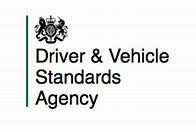Regardless of where you are in your career, starting a new job can be a nerve-racking ordeal. As you won’t know anyone, you’ll be oblivious to the team dynamics and possibly your job role can be a mystery to you at this stage. Let’s face it, who isn’t scared of the unknown? To hopefully easy your first day anxieties, we have collaborated our top tips to help you stop feeling nervous about your new career.
- Remind yourself what you’ll be doing.
When you’re caught up in your first day nerves, it can be easy to lose sight of why you actually there. So, take some time out beforehand, to go over the job description for the role and remind yourself of the possible responsibilities. That way you’ll be able to go in with a real sense of purpose. Not to mention, you’ll know what to expect as the week progresses.
Secondly, think about what made you want the job, and what helped you land it in the first place. If you do have a sudden urge of insecurity, remember that the employer has hired you for a reason. Obviously, they have faith in your abilities and believe that you’re a great fit for the role.
Lastly and at the very least, focus on day-to-day aspects of the job role instead of the fact that it’s your first day will hopefully distract you from the ‘new job fear’.
- Don’t expect that you know everything.
It may be tempting to carry around your interview façade through your first day, even if you may be secretly terrified. But make sure you don’t feel like you should excel at absolutely everything straight away.
You’ve already passed the biggest test, as you’ve already got the job. All that must be done now is keep up a good level of confidence, try and avoid coming across as arrogant, and most importantly, try and display a real willingness to learn.
Your new boss does expect you to be unsure of things at this stage, so there is no need to fret, just make sure if you are unsure ask questions – and try not to get yourself into a state of panic. Minor errors are all part of a learning process, and the employer is generally understanding of any mistakes you may make early on.
Do ensure that you take any accountability for your actions. As you are far better off admitting to anything of which goes wrong and trying to find a resolution rather than trying to hide it. As it could be easier to fix than you may thing, trying to brush the issue under the rug isn’t very tactful or professional.
- Remember that you won’t be new forever!
New things are generally scary from everyone & it’s totally natural to feel anxious about starting a new job. But do remember that it will pass.
Fear is relatively out of your own hands, but if it does get a bit too much, remember that new things always turn into familiar things. It does take time but it will happen. Reassuring yourself that you’ve managed to tackle the biggest hurdle and the even more terrifying test is over! If you managed to get through that, you’ll be able to get through this.
Before you even know it, your role will be second nature and you’ll know everyone (at least on a first name basis), and hopefully you’ll understand your colleagues likes and dislikes enough to know what kind of jokes are appropriate or inappropriate.
An additional boost, try and convert your potential anxiety into excitement. Try think of the bigger picture will help you ease your stress and settle your new situation.
- Try and be on your best behaviour.
This goes without saying, that the basic rules apply more than ever at this stage. So, make sure that your nerves aren’t heightened by a stern chat with your boss within the first week on the job. Try and always be on time, hardworking and avoid desktop distractions.
First impressions are important, coming into a new job with a positive attitude and willingness to learn will work in your favour. This can help you pass your probationary period with flying colours.
- Try not to be too big for your own boots.
Pursuing to impress can be very tempting but to make certain promises of which you may not be able to keep can be jeopardising.
Even if your intentions are good, always try and assess your abilities before agreeing to any new tasks or duties. Although you shouldn’t foreground the areas you potentially lack in certain skills or experience in, you shouldn’t put up a front if they come up.
Similarly, if your role involves leading a team, don’t go power crazed, to suck up to your superiors. Instead, try and learn and observe.
- Try and write everything down.
Whether it’s general instructions, login information, passwords or to-do-lists, it’s always best to have a notepad and pen to hand.
Chances will be that you’ll be bombarded with a lot of information on your first day, and it may be impossible to write everything all down amongst the excitement, nerves and various colleagues names.
However, having a written account of what you need to do and remember will help you stay on track throughout your incubation period.






